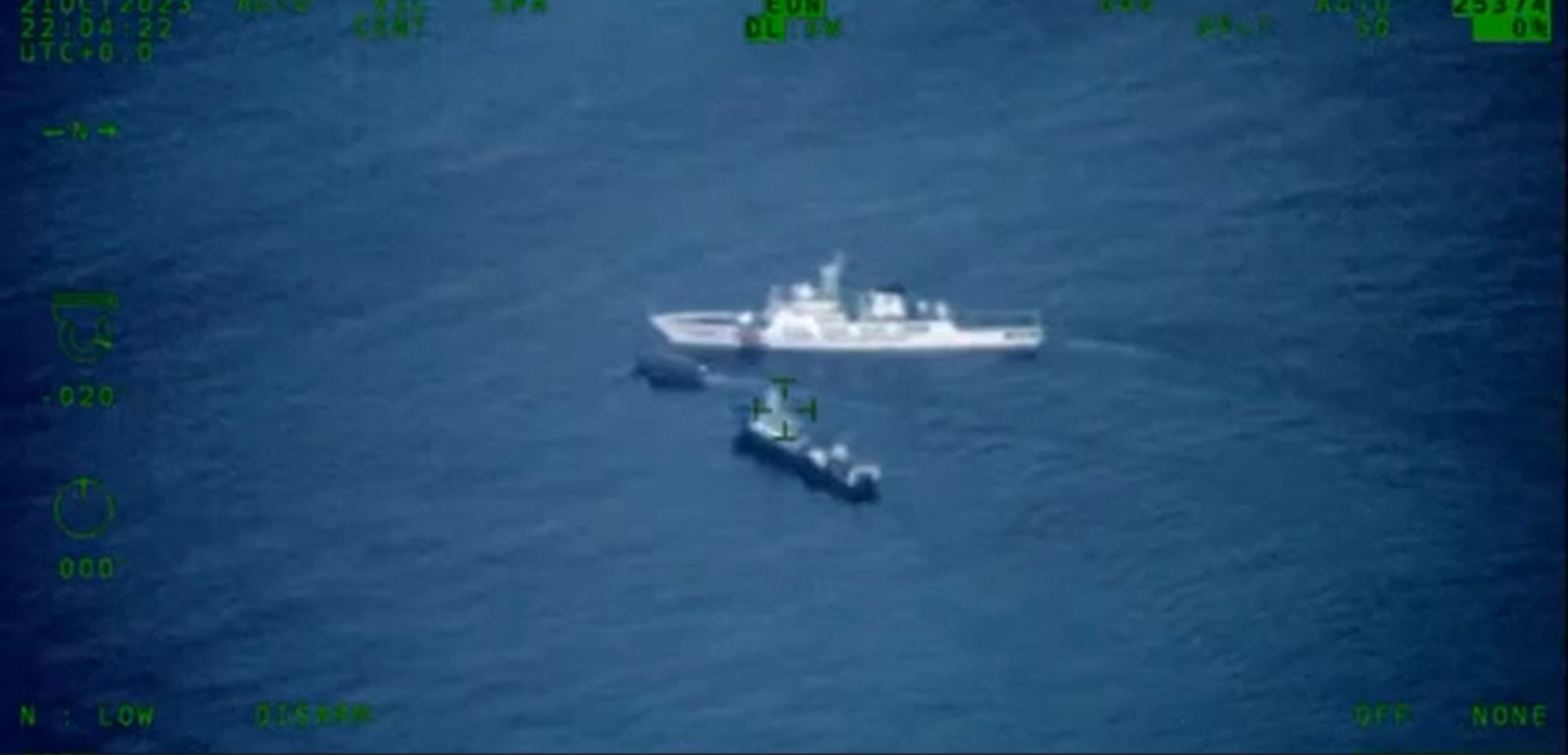
‘DANGEROUS, IRRESPONSIBLE’ In this screenshot of a video taken by the Armed Forces of the Philippines some 2 kilometers east of Ayungin (Second Thomas) Shoal, China Coast Guard Vessel No. 5203 blocks a boat contracted by the AFP for a resupply mission on Sunday morning in that area of the West Philippine Sea.
MANILA, Philippines — A National Security Council (NSC) official on Tuesday said Philippine government should not invoke the Mutual Defense Treaty (MDT) between Philippines and United States to resolve China’s aggression in West Philippine Sea (WPS).
NSC Assistant Director General Jonathan Malaya pointed this out in response to criticisms that the accord had supposedly become useless in dealing with China’s harassments of Philippine boats.
He said MDT cannot be cited since the activities of China in WPS do not constitute armed attacks.
“As stated in the MDT, a public attack at a vessel of the Philippines will be enough to trigger MDT,” Malaya explained over CNN Philippines.
“However, there was no armed attack, so there would be no basis for us to trigger the MDT,” he observed.
Malaya is also quick to clarify that these statements are only his personal opinions.
“Well, sa tingin ko po, and that is my personal opinion, hindi natin kailangang i-invoke,” he said.
(Well, the way I see it, and this is my personal opinion, we do not need to invoke it.)
“And even if we want to invoke it, hindi pa napapanahon,” he noted.
(And even if we want to invoke it, it is not yet the right time.)
Chinese ships previously hit a resupply boat contracted by Armed Forces of the Philippines and a Philippine Coast Guard ship which damaged the two vessels.
Malaya is contradicting impressions from some quarters who said the accord had not been useful.
“That would be unfair to the Philippines and the United States because the MDT is the mother of all agreements with the US,” Malaya said
He noted Visiting Forces Agreement and Enhanced Defense Cooperation Agreement between the two countries are based on the treaty.
“The MDT cannot be seen solely as an offensive tool, but it is also the bedrock of our security relations with the United States,” he said.
MDT states both countries will support each other if an external party attacks either Philippines or United States.
The accord was signed on August 30, 1951.